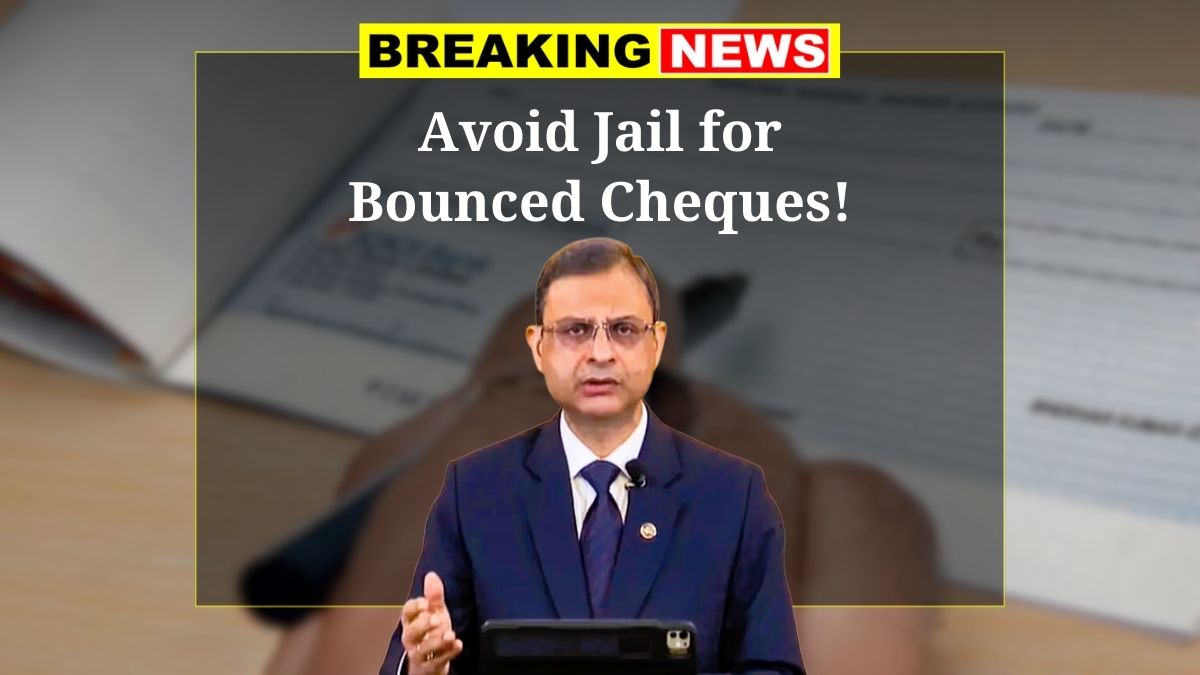RBI New Cheque Rules : If you still write cheques in 2025, it’s time to pay close attention. The Reserve Bank of India (RBI) has rolled out new rules to tackle cheque bounce cases—and they’re quite serious. These updated guidelines are designed to make the entire process faster, fairer, and more accountable.
Whether you’re a business owner issuing cheques regularly or an individual using them occasionally, these new rules could impact you directly.
Let’s break down what’s changing.
1. You’ll Be Notified Within 24 Hours If a Cheque Bounces
No more waiting around to find out what happened. If a cheque you issued bounces, your bank will now have to inform you within 24 hours—through both SMS and email. This rule ensures that you get notified in real time, giving you a fair chance to sort things out quickly and avoid further issues.
2. Habitual Offenders? Get Ready for an Account Freeze
RBI is cracking down on repeat offenders. If your cheques bounce three times, banks will now have the authority to temporarily freeze your account.
Yep, you read that right.
This move is meant to encourage responsible financial behavior and stop people from issuing cheques they know will bounce. So, if you’re in the habit of risking it, now’s the time to clean up your act.
3. Same Penalty Rules for All Banks
Earlier, different banks had different penalty charges for cheque bounce incidents, which often left customers confused and frustrated. Now, the RBI has stepped in to standardize the penalty structure.
This means no more guessing how much you’ll be fined—every bank will follow the same penalty guidelines, making things much more transparent and fair for account holders.
4. Central Tracking of Serial Defaulters
One of the most impactful changes? RBI has set up a central database to keep tabs on frequent cheque defaulters.
So, if someone is a repeat offender, their record won’t just stay with one bank—all banks will be able to see it. This makes it harder for such individuals to open new accounts or misuse the cheque system elsewhere. It’s a big move toward accountability and trust in banking.
5. Legal System Finally Gets Some Relief
Cheque bounce cases have clogged up Indian courts for years. The RBI’s new approach encourages faster, out-of-court settlements. That means fewer lawsuits, quicker resolutions, and less stress for both parties involved.
The aim is to fix the issue at the root, rather than dragging people through the legal system for months (or even years).
A Push Toward Digital Payments
While these changes strengthen cheque usage, the RBI is also giving a subtle nudge toward digital payment methods. Cheques are still important for many, especially businesses, but digital transactions are faster, safer, and less prone to disputes.
So, while modernizing cheque rules, the RBI is also signaling a digital future for Indian banking.
The new cheque bounce rules, effective from 2025, mark a major shift toward fairness, speed, and responsibility. With stricter rules, quicker updates, and a central tracking system, the RBI is making it clear: the misuse of cheques will no longer be taken lightly.
If you still use cheques—make sure you’re doing it right. Because the system is watching.







